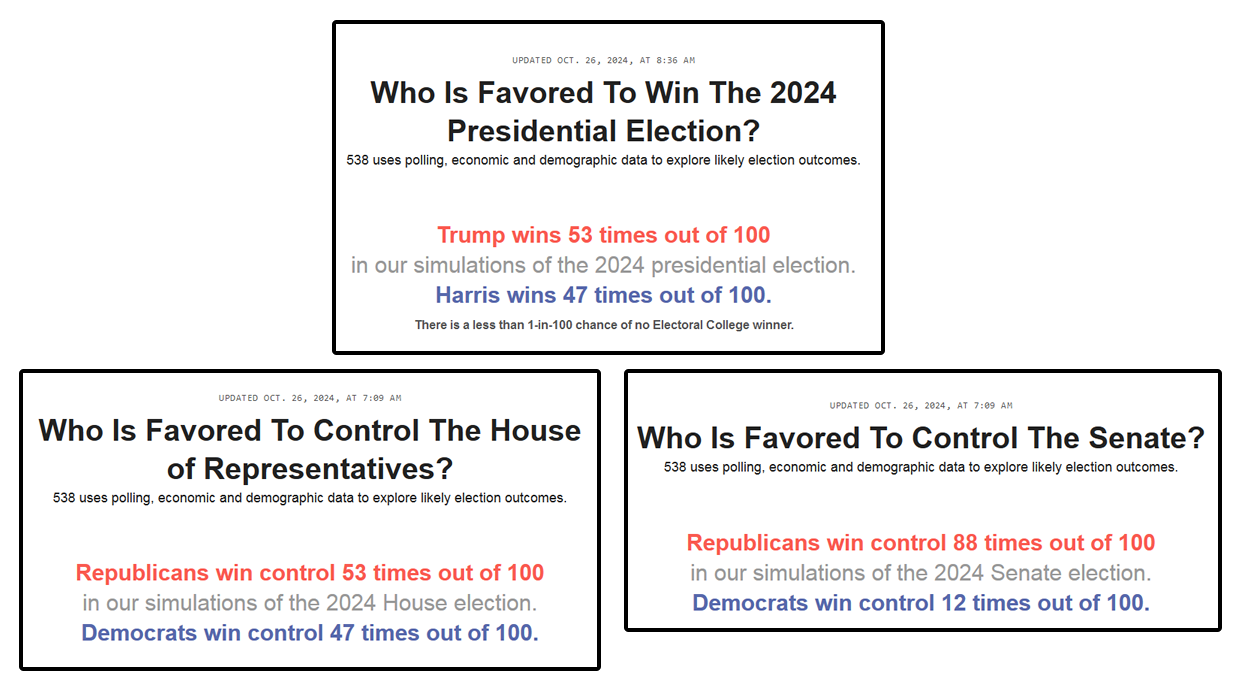this post was submitted on 26 Oct 2024
93 points (97.9% liked)
electoralism
21995 readers
804 users here now
Welcome to c/electoralism! politics isn't just about voting or running for office, but this community is.
Please read the Chapo Code of Conduct and remember...we're all comrades here.
Shitposting in other comms please!
founded 4 years ago
MODERATORS
you are viewing a single comment's thread
view the rest of the comments
view the rest of the comments

I see what you're getting at and it aligns with other things that I've heard--namely, that a swing state blowout to either side is more likely than 4-3 or 5-2. However, I still don't think it's accurate to says that these probabilities are dependent on each other. Like I said, they're not dependent on each other, they're dependent on the same thing.
Aren't these factors already baked in to the individual races, though? Like, surely part of tuning the model is looking at polling performance in other races and adjusting based on how that will affect the race in question.
I hate to sound like but Bayes' theorem is really all you need here: in statistics those 2 things have the same effect on the probabilities. I agree with you that there isn't a causal relationship between the outcomes in each race and the causal relationship is to the voter preferences upstream in the chain of causality, but P(Rs winning House|Rs win presidency) > P(Rs winning presidency) regardless of what causes what.
but Bayes' theorem is really all you need here: in statistics those 2 things have the same effect on the probabilities. I agree with you that there isn't a causal relationship between the outcomes in each race and the causal relationship is to the voter preferences upstream in the chain of causality, but P(Rs winning House|Rs win presidency) > P(Rs winning presidency) regardless of what causes what.
I have little to no stats knowledge so I'll defer to you even if I don't get it